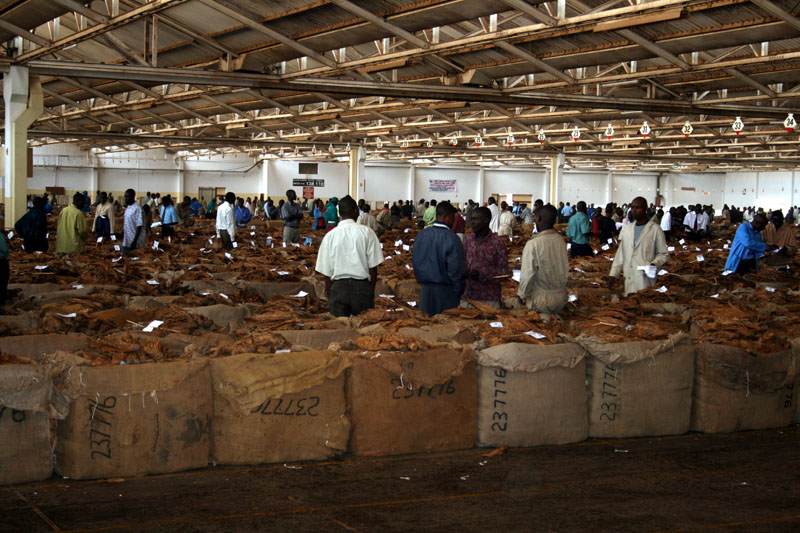Protecting growers

The tobacco sales floor in Lilongwe. Few economies rely on tobacco as much as Malawi’s
Debate on a report on Malawi’s Tobacco Industry Bill by a joint parliamentary committee has been deferred by the leader of the House, Kondwani Nankhumwa, according to a story in The Maravi Post.
The bill, which was tabled in June this year before being referred to the joint committee, seeks to consolidate the Tobacco Act and the Control of Tobacco Auction Floors Act into one law.
It also seeks to introduce regulations specifically designed to cover contract farming, whereas previously only the auction system was recognized in law.
Presenting the report to the House, committee chairperson Joseph Chidanti Malunga said the bill would regulate contract farming and fill the gap in the legislation.
He said the committee had taken into consideration the fact that contract farming would drive auction marketing to extinction.
“The joint committee was of the view that the bill should not provide for any quota,” he said. “The markets should be left open and the market dynamics should prevail and determine volumes of tobacco to be produced and sold under either system.”
The Post report said that, under the contract farming system, growers suffered a lot of deductions, many of which they become aware of only ‘when the tobacco was being sold by the buyer’.
The committee was said to have received submissions that contract farming should be eliminated because it had proved to be less profitable for growers than the auction system, even though contract tobacco was sold for a higher price than was auction tobacco.
“The committee considered the submission and formed the view that the funded contract system should be retained because not all farmers can afford to produce tobacco with their own resources,” said Malunga. “If it is abolished, growers will be forced to get loans from commercial banks who charge exorbitant interest rates.”
However, the committee has recommended additional provisions aimed at protecting growers operating under contract farming from deductions not properly spelt out and other financial burdens.